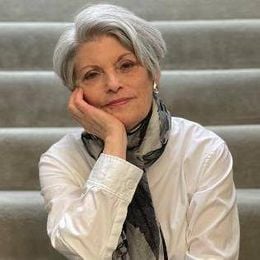The Surprising Gains of Aging
How a shift in mindset can reveal a major misconception about aging
Old age (whenever you think it begins) is commonly seen as an inescapably depressing, downward slope toward death, accompanied by a continuous string of losses. Who wouldn't dread it?

I am now 77 — old by most definitions — but I've been surprised to find the changes I notice aren't any greater than those I've experienced my whole life. They aren't coming on faster. And most of them aren't for the worse. We tend to look back through rose colored glasses, glorifying what was, but it occurs to me now that every stage of life brings gains and losses.
Looking Back with Clearer Eyes
It starts with childhood, which comes to an end with the rude awakening of young adulthood, when we realize we have to buy our own groceries and make our own decisions — for the duration. The threshold of graduation looked to me like the edge of a precipice.
I've been surprised to find the changes I notice aren't any greater than those I've experienced my whole life.
Gains aside, my 20s, brought the realization that everything — marriage, career-building, staying slim — was harder than I'd expected. I would never look like Gloria Steinem, let alone Twiggy. Between all the turmoil and Andy Warhol's Factory, I lost any complacency about where the world was going. I was mystified, frightened.
My 30s brought the thrill of children and career advances, but I lost all my free time. I was too busy to follow the news and missed both Reagan administrations. I lost the sense that I could be the mother or architect I'd imagined. I felt I wasn't measuring up. Friends' marriages were collapsing all around me, costing me friends.
In my 40s, my children got up off my lap for the last time, a loss of physical intimacy so painful, I had to hide their baby pictures. I lost confidence in knowing how to help them. I lost myself in worry.
In my 50s, despite the many gains, I lost both my parents and several important others. I lost the illusion of immortality. I lost any remaining positive take on politics and the belief that my generation would change the world for the better.
My 70s, like all the decades before, have brought gains and losses, but paradoxically even more of the first than the second.
In my 60s, skiing, horseback riding, and learning Japanese came to feel too risky or difficult. I lost the ability to do three things at once, and my memory got worse. A few friends died.
My 70s, like all the decades before, have brought gains and losses, but paradoxically even more of the first than the second. It is true that my memory is even worse, I worry that every new ache is the beginning of the end, and some very, very dear friends have died.
But I published a book and gained a new sense of possibility and increased productivity. My marriage is sailing along more smoothly, as are my children's lives. I've gained a grandchild. I am less anxious and more fit than I'd ever expected to be.
I'm Not the Only One
I'm not alone in feeling that this last decade is happier than I expected. Personally, I'm astonished at what a good time I am having. I've learned how to shop and cook for my gourmand husband so that we can eat — even occasionally to excess — and not gain weight. I've learned how to trick myself into exercising — something I've always hated — so that, while I can't say I enjoy doing it, I do enjoy seeing the progress I make. I've learned how to say "No" to things (and people) I don't like, so that most of my time is spent pleasurably.
If you are constantly looking in the rear view mirror, you can never appreciate the skills and strengths you are enjoying at this moment.
I know that I am extremely lucky to be in good health, financially secure and to have an optimistic frame of mind. But most of my friends, including some who are experiencing health "issues," are similarly enjoying their 70s and 80s. Some have lost a spouse, but others have found new partners, a few after years of post-divorce solitude. Few feel that they have come to the end of new pleasures and discoveries.
Changing Your Mindset
As we go through life, both our bodies and minds change constantly, but focusing only on the physical — the wrinkles, the back aches, the boney knees — makes you blind to the mental advances that come with long life. If you are only aware of having lost your youthful vigor and lustrous hair, you will fail to notice your newfound freedom from preoccupation with the trivial, your sense of peace with who you are, your greater comfort with the ups and downs of life.
We age every day of our lives, and how we understand that process is a matter of mindset. When I was in college and had unlined skin and could do a split, I didn't feel attractive and flexible but instead was obsessed with the size of my post-puberty rear end.
When I was a young mother and could keep my eye on the kids, while cooking dinner and talking on the phone, I didn't feel competent and in control. Instead I was tormented by fears that I was failing in my work and looked back longingly at the sense of accomplishment I'd experienced in college.
Today is the youngest you will ever be.
Today is the youngest you will ever be. Five or ten years from now you may find yourself looking back wistfully on your present tennis game or night vision or comfort in high heels, something you currently take for granted. If you are constantly looking in the rear view mirror, you can never appreciate the skills and strengths you are enjoying at this moment.
Correcting this predicament is another gift of getting old. Death becomes more real but also less terrifying. Knowing you will die helps you focus on the now. A friend who was recently diagnosed with pancreatic cancer told me his diagnosis has enhanced his ability to live in the present and to appreciate more fully his wonderful life.
When you finally come to believe in your own mortality, when you truly know that your time is limited, you don't want to waste it. And as a result, you get better and better at doing just that.


